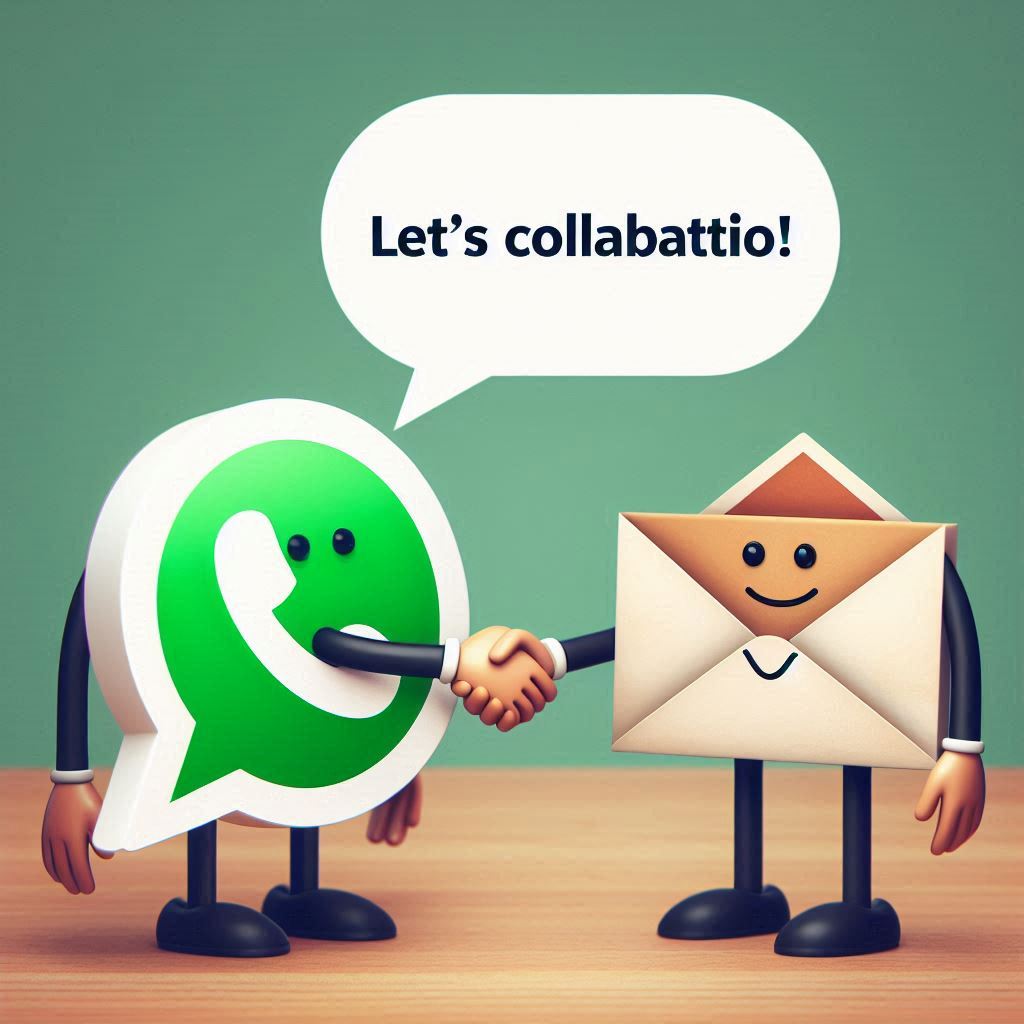In 2024, businesses must try various digital marketing channels with their customers. One of the most highly effective ways to promote customer engagement and increase sales is through WhatsApp marketing and email marketing. Which one of these works better for your business in 2024? Compare the use and efficiency of WhatsApp and Email marketing and determine which one is right for your strategy.
Power of WhatsApp Marketing in 2024
WhatsApp marketing offers a massive opportunity to touch over 2 billion active users across the globe. While phone calls and SMSs are relatively impersonal, WhatsApp is a very personal experience. With this, the business immediately reaches the customers. WhatsApp marketing, in 2024, will be very important in enhancing customer interaction.
Why WhatsApp Marketing?
Instant Communication
WhatsApp uses real-time communication which means you can easily initiate communication with your customers almost instantly. Be it customer service, order updates, or running promotions, the possible instant communication on WhatsApp is quite extensive.
One of the major advantages of WhatsApp is that it boasts a high open rate. Quite often, messages sent using WhatsApp open more frequently than emails. This would therefore ensure your marketing message reaches the desired recipient and has a much higher chances of being read.
- Multimedia Messaging
The possibilities that WhatsApp offers, especially when it comes to sending images, videos, and even voice messages, mean a business can now communicate with customers in a variety of ways. This diversity of content will make the experience much more engaging and interactive for customers. The ability to share rich media is going to be highly essential for differentiation among the noise in 2024. - Targeted Campaigns
WhatsApp helps your business make targeted campaigns. With some degree of segmentation of your customers based on their behavior, purchase history, or preferences, you can have a target message that they are likely to convert when seen. - Customer Engagement WhatsApp is excellent for relationships with customers. Quick, personalized responses to their queries give them a significant satisfaction level with your brand, hence keeping them loyal.
Challenges of WhatsApp Marketing
Though WhatsApp marketing is very powerful, there are some challenges also:
- Privacy Issues
- Customers may not wish to share their mobile numbers with the businesses. Getting their permission to contact them should be provided so that privacy levels are not invaded.
- Not Much Automation in WhatsApp
- Automation tools for WhatsApp are developing, but they have not reached the same levels as their counterparts, email marketing platforms, meaning mass, automated messages cannot be sent so effectively.
The Power of Email Marketing in 2024
Email marketing is one of the most powerful tools for digital marketing in the year 2024. However, even with the development of newer communication fields, there is still an enormous amount of relevance to email communication with customers.
Advantages of Email Marketing
- Higher Reach
- Though WhatsApp has a lot of users, it’s not everybody who uses it for businesses. Meanwhile, email is used globally. Nearly every individual has a mail account. This makes email marketing an excellent way to reach more diverse users and audiences.
- Sophisticated Automation
On their email marketing services,
Mailchimp and HubSpot can exploit advanced automation. Depending on applications in this manner, a business is able to send emails based on such actions as an abandoned cart purchase or even based on the time, for example, when someone’s birthday or anniversary falls.
Cost-Efficiency
It is cheaper than WhatsApp marketing. Sending bulk emails takes fewer resources than sending messages via WhatsApp, especially if a business has a large customer base.
Among the major benefits of email marketing, tracking detailed analytics is a no-brainer. Open rates, click-through rates, and even conversion rates can be monitored to tweak any future campaigns. That data’s gold in optimizing your marketing efforts and improving ROI.
Personalization
Email marketing also permits levels of personalization to be very high. This is done by segmenting one’s email list based on customer behavior thus enabling messages that directly appeal to the recipient’s interests.
Challenges of Email Marketing
- Even though effective, email marketing comes with its share of disadvantages:
Open Rates are lower - E-mails oftentimes get marked as spam or even ignored by recipients. The open rates of e-mail are much weaker when compared to WhatsApp messages.
- Delayed Communication
- As opposed to the instant reads in WhatsApp, e-mails aren’t opened on time. Such a delay in communication may result in missed opportunities to connect with the customer when they are willing to engage.
Which Strategy Do You Need to Implement in 2024????
The Decision to Use WhatsApp Marketing or Email Marketing
It all depends on what goals your business has or where you need to improve your customer relationships.
Use WhatsApp Marketing in case you need direct communication with the customers.
- For businesses, which are based on the speed of response and instant interaction.
- You prefer creating unique, media-rich campaigns more.
- You have a smaller, more focused group of customers, but for your business
- Choose Email Marketing If you would like to reach a large, very broad range
- You’ll need sophisticated automation as well as granular analytics
- Low cost with which to engage in order to grow in the long term
- Scheduled campaigns or newsletters
Conclusion:
WhatsApp marketing and email marketing do fall pretty comfortably in the overall digital marketing strategy for a business in 2024. Both have special strengths, and a business cannot really treat them as if they are mutually exclusive. A mix can be just effective since WhatsApp offers immediacy while email marketing offers automation and wide reach.
Last but definitely not least depends fully on the issues at hand for the business, as well as specifics related to its customer population and long-term objectives. Both of these in themselves you can use to prepare a general marketing campaign in which you are likely to involve your target audience and help drive sales.


